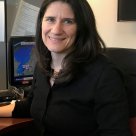He may be only 19 years old, but Marionopolis college student Gabriel Dayan already has four years of cancer research under his belt.

It was a “basic” science class in high school that got him thinking.
“Back in 2014 we started learning about the immune system and how the immune system was recognizing viruses and bacteria, but then I asked myself ‘why not cancer?'”
After a bit of research, he discovered that the immune system can sometimes detect cancer, so he set out to find a way to enhance its ability to do that and entered the Hydro-Québec Super Expo-sciences — which he won.
READ MORE: 8 medical breakthroughs Canadians should be proud of
Encouraged by his success, Dayan was motivated to bring his project to the next level.
“I started emailing different labs to ask if I could bring my project from theory to practice and that’s what happened,” he said. “I’ve been working at a lab at Sainte-Justine Hospital ever since, under the supervision of Dr. Elie Haddad.”
Last summer he even got a full internship, an experience he described as “amazing.”
READ MORE: Immunotherapy cancer treatment that helped Matthew Schreindorfer comes to Montreal
The lab time allowed Dayan to pursue his research and garner another win at the Hydro-Québec science fair.
His project, entitled An Immune Response to All looks at genetically modifying stem cells to fight cancer.
He based his award-winning project on the work of Dr. Carl H June, whose immunotherapy technique involved collecting immune cells from leukemia patients, genetically modifying them to fight cancer and re-injecting them into the patient.
“It’s kind of like a scanner that goes through your blood and scans every cell in the body, ” he explained. “If the cell is a B cell, so in the case where this is a cell where leukemia happens, then it will kill the cell.”
The model proposed by Dayan, however, does away with the need for constant injections by giving the cells the ability to self-regenerate.
Because the CHU Ste-Justine is a children’s hospital, Dayan said it made sense to study leukemia, as it is the most common cancer in children.
WATCH: Behind the science of cancer-fighting immunotherapy
A win at the Quebec level means Dayan will be heading to Ottawa in May, to take part in the Canada-Wide Science Fair finale, an experience he’s looking forward to.
“I like to go to these competitions,” he said. “I’m pretty calm. I try to interact with the judges and just have a conversation.”
Regardless of the outcome, Dayan’s future is looking bright.
“I’m graduating CEGEP this year, so I’m applying to medical schools and I definitely want to keep doing this research throughout my university education and even in the future.”









Comments